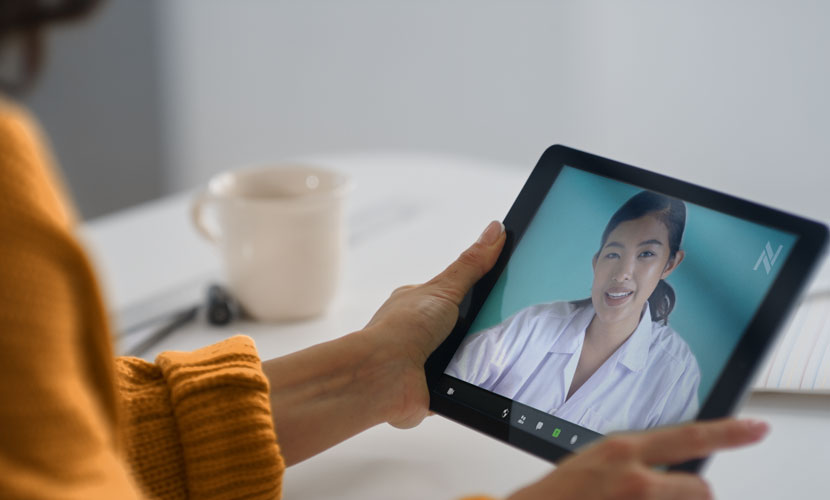Over the past few weeks we have been helping slow the spread of COVID-19 by practicing social distancing, washing our hands frequently, and wearing masks in public. This is all a step in the right direction, but keeping ourselves and our families healthy requires much more than preventing infection.
Decisions around non-COVID related healthcare at this time can seem especially complicated. Whether you’ve delayed scheduling an important healthcare checkup, or simply want a good plan of action in case a loved one needs emergency care, it can be hard to know the right thing to do. To help you make the best decisions possible for your family, we recently asked The Good Doctor – Dr. J. Kevin Croston, CEO of North Memorial Health – how to continue to stay safe while taking care of our health in the best possible way.
Should I postpone preventative care or routine visits?
“The best place to start is talking with your doctor. For visits that are truly routine and not time sensitive, you may be able to push them out a couple weeks. We don’t want anyone to fall behind on important appointments and screenings,” says Dr. Croston.
For care needs that do not require an in-person visit, North Memorial Health offers the option of a virtual video visit. Many types of primary and specialty care visits that used to be done only in-clinic can be conducted via a phone or video visit now enabling patients to stay connected while staying safe at home, including specialty care visits for heart and vascular concerns, rheumatology and endocrinology, even mental health therapy.
How do I decide if I should come in person or schedule a virtual care visit?
“Have a conversation with your doctor about what’s right for you right now,” Dr. Croston says. “While many visits can be done virtually, you may need to see us in person for urgent needs, or healthcare concerns that require more evaluation.”
What happens if I need urgent or emergency care?
“If you are having chest pain, if you are having symptoms of a stroke, if you have a broken leg, don’t wait, come to the hospital, and let us take care of you.” Dr. Croston urges us not to wait if something needs immediate attention. North Memorial Health has the capacity to care for the things we would normally care for while also caring for people with COVID-19. Everyone who comes to the hospital is now screened with standard questions about COVID-19 symptoms including fever, cough and loss of taste and smell.
Is it safe to come to the Emergency Department?
“Absolutely. Emergency Departments and urgent care centers have always had strict protocols for preventing infection. North Memorial Health follows CDC guidelines for keeping patients and staff safe, and we have added additional safety measures designed to protect everyone. We’ve added plexiglass at patient registration and welcome desks and implemented restrictions to our visitor policy. All of these factors add up to a safer experience,” said Dr. Croston.
North Memorial Health tests everyone for COVID-19 who is admitted to the hospital, whether they have symptoms or not. Other new practices include putting social distancing decals on floors throughout the hospital along with posters and signage educating about the importance of social distancing.
What should I do if I think I might have COVID-19?
Many drive-up and walk-in testing centers are now open for people who are experiencing symptoms like fever, cough, loss of taste or smell, or shortness of breath. Minnesota has made it a priority to remove as many barriers to testing as possible.
“If you have any of these symptoms, don’t wait, go to your nearest testing center as soon as possible,” said Dr. Croston.
The Good Doctor's 5 Tips for Getting Good Healthcare Now
- Talk to your doctor to determine what healthcare appointments you should be making now, and what can wait a little bit. Don’t fall behind on preventative care or important check-ins for existing medical conditions.
- Consider choosing virtual care wherever possible. Maintaining good health is crucial at this time, and virtual visits are an excellent option for primary and specialty care needs, including mental health.
- Don’t hesitate to come to the hospital or urgent care center if you need emergency care. Safety precautions are in place based on CDC guidelines and best practices for preventing infection to keep you and your loved ones safer if you need emergent or urgent care.
- Maintaining good mental health is also very important as we experience circumstances that are so different from our normal lives. Virtual visits are an excellent option for mental health concerns including regular therapy or psychiatric appointment.
- If you think you might have COVID-19, get tested as soon as possible. You will not only be safeguarding your own health, but the health of loved ones in your household and your community.


